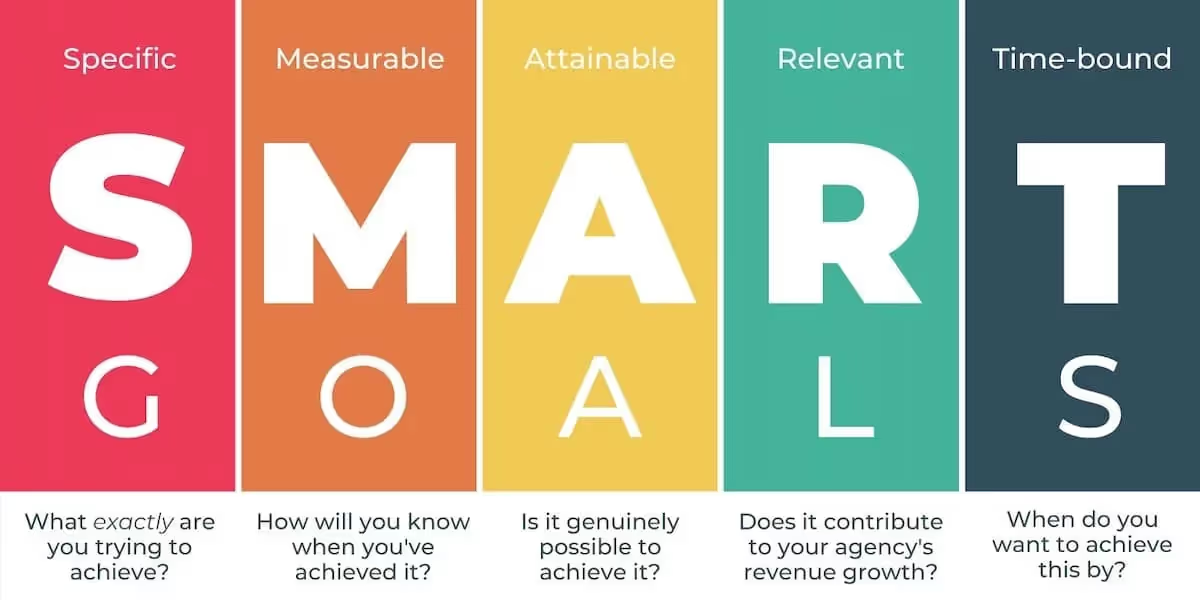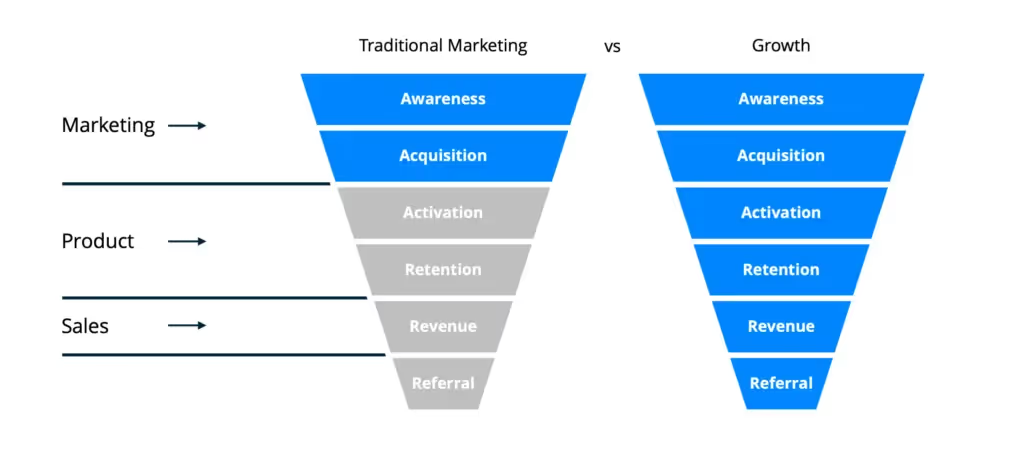How To Create a Successful Growth Marketing Strategy
According to 3Q Digital's Growth Marketing Survey Report, less than 1 in 5 marketing leaders have the structure in place to execute an effective growth strategy.
Without a plan to facilitate the continued growth of your company, you will be left vulnerable to changing market dynamics and a volatile customer base.
Having a concrete strategy for growth is the secret to overcoming internal and external barriers and building an effective, scalable growth marketing model that will sustain your business in the long term.
This article will show you how to create a growth-oriented marketing strategy to drive customer acquisition and retention.
Step #1. Define Your Vision
It's not enough to say you want to grow your business. You need to figure out what growth means for your company at the moment.
If you don't have a clear vision for what you want to achieve with growth marketing, you will end up chasing the wrong things, getting distracted, wasting resources, and taking forever to hit milestones.
So you need to decide which target business goals your growth strategy will support within a set timeline. This way, it will be easier to stay on track and measure your progress. For example, your goal might be to:
- Increase newsletter signups by 10% every month
- Grow cart value and website conversions by 25% in four months
- Break into x and z new markets by year's end
- Generate 30% more revenue every quarter for two years
The more SMART your vision is, the better.

Step #2. Establish Success Metrics
Your growth marketing efforts will likely involve both digital marketing and traditional marketing tactics, so there are going to be all kinds of Key Performance Indicators (KPIs) that you can track. But not all of them are going to be important to you.
Your job is to identify the key growth metrics you will use to determine how well you are progressing toward the goals you set earlier. Some examples of metrics you can set for different goals include:
Goal
Metrics
Acquire new customers
Click-Through Rate (CTR) on paid media campaigns, email marketing open/CTR, landing page conversion rates, customer acquisition costs, etc.
Increase revenue
Customer lifetime value, monthly/annual recurring revenue, average revenue per user, customer lifecycle, revenue churn, etc.
Step #3. Research Customers and Competitors
Now that you know what areas of your business you want to grow, it's time to begin gathering data to help you get there.
Start by understanding who your ideal and existing customers are. Dig into their pain points, behaviors, and entire customer journey. Figure out which customers use your services the most and which ones you generate the most revenue from. What characteristics set them apart?
Look at your competition or businesses in a similar niche that are experiencing tremendous growth and see what you can learn from their strategies. Pay attention to what differentiates your brand from theirs, then leverage that to blaze past the competition.
The information you glean from your research will help you shape your growth marketing plan, identify market gaps that you can fill, find ways you can better serve your customers, and position your brand to claim a bigger market share.
Step #4. Brainstorm Potential Strategies
Growth strategies aren't going to fall into your lap; you have to come up with ideas for how to connect with your customers, improve your speed to lead time, and make your brand a market leader.
Don't limit the strategy brainstorming process to your growth marketing team alone. Source for ideas from people across the organization. Additionally, use social listening to discover what your target audience is saying about your product and competitors, then harvest their suggestions or build on interesting ideas.
Step #5. Choose Tactics in Line With Your Goals
All the strategies you came up with in the last step won't be winners, and you probably won't have the time or resources to try them all out, even if you want to.
Your energies should be focused on the tactics that align with the objectives you have set and are equipped to drive the business growth you want within the timeline you are working with.
Once you identify your top-performing strategies and channels, double down on your efforts and focus on optimizing them.
Step #6. Budget, Execute, and Evaluate
When creating a budget for your growth marketing efforts, don't get too hung up on what it will cost. Instead, consider the value that it will generate for your brand and factor that into your calculations. Don't forget to factor in the cost of whatever growth marketing platform you will use — e.g., Hubspot.
Once you have allocated the amount of money you can afford and intend to spend to implement your growth plan, all that's left is to put it into action and start reaping the rewards.
As you execute your growth marketing strategy, diligently monitor the results you are getting so you can pinpoint new trends and know what's working for you, what needs to be adjusted, and the tactics to move away from.
Want to Jump Start Your Growth Marketing? Connect With Matter Made
Devising, executing, and tracking the performance of a sustainable growth strategy is key to building a successful business that is constantly growing and beating the competition.
Matter Made helped Productboard achieve deeper market penetration for their product and 99% month-on-month enterprise lead growth using a five-point omnichannel integrated campaign.
Want to turn your marketing initiatives into a similar relentless growth engine? Let's talk.













